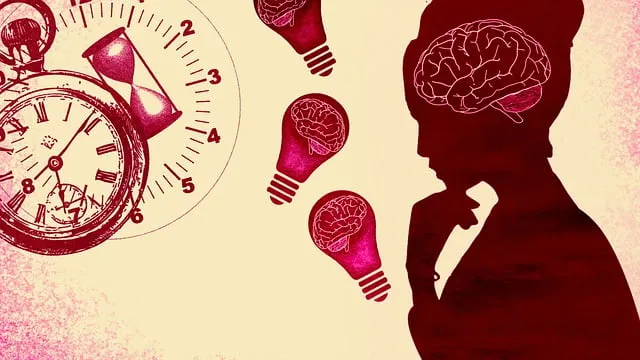Emotional Intelligence (EI), recognized by Golden Kaiser Permanente behavioral health services as a cornerstone of mental wellness, empowers individuals to manage emotions effectively through self-awareness, relationships strengthening, and informed decision making. Their innovative programs equip people with tools for navigating challenges, building resilience, integrating self-care routines, and improving overall well-being via enhanced emotional understanding and stress management. Key methods include mindfulness practices, active listening, empathy cultivation, and mental wellness journaling guidance.
Emotional intelligence (EQ) is a powerful tool that can transform personal and professional lives. This article explores the profound benefits of developing EQ, highlighting its impact on well-being and success. We delve into the role of Golden Kaiser Permanente Behavioral Health Services as a pioneer in EQ development, offering valuable insights and programs to enhance self-awareness and interpersonal skills. By examining key components and practical strategies, readers will discover how to integrate emotional intelligence into daily life, fostering healthier relationships and improved decision-making.
- Understanding Emotional Intelligence and Its Benefits
- The Role of Golden Kaiser Permanente Behavioral Health Services in EQ Development
- Key Components to Enhance Self-Awareness
- Strategies for Improving Social Awareness and Empathy
- Practical Tips for Integrating Emotional Intelligence into Daily Life
Understanding Emotional Intelligence and Its Benefits

Emotional intelligence (EI) is a powerful tool that equips individuals with the ability to recognize, understand, and manage their own emotions, as well as empathize with others. It’s not just about feeling emotions; it’s about using them effectively. Golden Kaiser Permanente behavioral health services highlight EI as a key component of overall mental wellness. By cultivating emotional intelligence, individuals can enhance their relationships, make better decisions, and navigate challenging situations with greater ease.
The benefits of high EI are far-reaching. It fosters resilience building, enabling people to bounce back from setbacks and adapt to change. Self-awareness exercises play a crucial role in developing this skill by helping individuals recognize triggers and understand the root causes of their emotions. Moreover, integrating self-care routine development for better mental health into daily life supports emotional balance and enhances overall well-being.
The Role of Golden Kaiser Permanente Behavioral Health Services in EQ Development

Golden Kaiser Permanente Behavioral Health Services play a pivotal role in fostering and developing Emotional Intelligence (EQ). Their comprehensive programs are designed to empower individuals with essential tools for navigating complex emotional landscapes. Through innovative approaches, such as tailored Communication Strategies and introspective Self-Awareness Exercises, these services offer a nurturing environment for personal growth.
One effective method they utilize is Mental Wellness Journaling Exercise Guidance. This practice encourages individuals to reflect on their experiences, emotions, and thoughts, enhancing self-understanding and emotional regulation skills. By engaging in regular journaling, participants develop a deeper connection with their inner selves, allowing them to better manage stress and foster healthier interpersonal relationships.
Key Components to Enhance Self-Awareness

Emotional intelligence building begins with a deep understanding of oneself, making self-awareness a cornerstone of this process. Key components to enhance self-awareness include cultivating mindfulness practices that help individuals stay grounded in the present moment. This allows for better recognition and regulation of emotions. According to Golden Kaiser Permanente behavioral health services, self-care practices such as meditation, journaling, and regular exercise can significantly contribute to mental health awareness and overall emotional intelligence.
Furthermore, self-esteem improvement plays a vital role in nurturing self-awareness. By challenging negative thought patterns and adopting positive affirmations, individuals can foster a healthier relationship with themselves. This, in turn, facilitates a more nuanced understanding of emotions and triggers, enabling effective management and communication. Mental health awareness is also enhanced when individuals are attuned to their emotional needs and respond to them appropriately, thereby promoting well-being and resilience.
Strategies for Improving Social Awareness and Empathy

Developing social awareness and empathy is a key component of emotional intelligence, as it allows individuals to understand and connect with others on a deeper level. A powerful strategy to enhance these skills is through active listening. When engaging in conversations, focus entirely on the speaker, maintain eye contact, and avoid interrupting. This shows respect and encourages open communication, fostering an environment where emotions can be openly expressed. By practicing active listening, individuals become more attuned to subtle cues and body language, enabling them to recognize and respond appropriately to others’ feelings.
The Golden Kaiser Permanente behavioral health services emphasize the importance of cultivating empathy as a means of improving relationships and overall mental wellness. This can be achieved by putting oneself in another person’s shoes, trying to understand their perspective, and acknowledging their emotions. Encouraging individuals to reflect on their experiences and the experiences of others through storytelling or participation in a Mental Wellness Podcast Series Production can also enhance emotional intelligence. Moreover, actively participating in Mental Illness Stigma Reduction Efforts contributes to building empathy by promoting understanding and compassion for those facing mental health challenges.
Practical Tips for Integrating Emotional Intelligence into Daily Life

Embracing emotional intelligence (EI) is a powerful tool for enhancing your daily interactions and overall well-being. Here are some practical tips to integrate EI into your routine, inspired by the expertise at Golden Kaiser Permanente behavioral health services.
Start by cultivating self-awareness—the cornerstone of EI. Take time each day to reflect on your emotions and understand their triggers. This mindfulness can be developed through simple practices like journaling or meditation. Additionally, actively listen to others and try to see situations from different perspectives, fostering cultural sensitivity in mental healthcare practice. The Stress Management Workshops Organization offers valuable resources for learning effective stress reduction techniques, which are essential for building resilience. By combining these strategies, you can improve your relationships, make more thoughtful decisions, and navigate life’s challenges with greater ease.
Emotional intelligence is a powerful tool for personal growth and improved relationships, as highlighted by the valuable insights from Golden Kaiser Permanente Behavioral Health Services. By understanding and cultivating emotional awareness, self-regulation, social awareness, and empathy, individuals can enhance their overall well-being and navigate life’s challenges more effectively. Integrating these strategies into daily routines can lead to better decision-making, stronger connections with others, and a more fulfilling life. With consistent practice, anyone can develop emotional intelligence, starting today.






